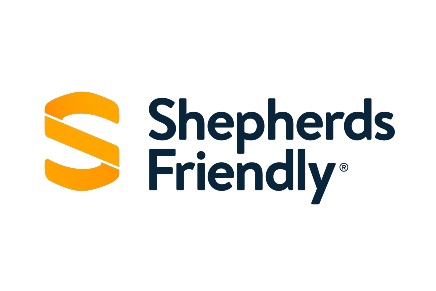Considering saving, investing, or taking an insurance product from a friendly society?
Find out everything you need to know about friendly societies in this handy guide.
Also consider: Investing for Beginners
Key takeaways
- A friendly society is a type of mutual society run by and for its members.
- Friendly societies can offer a range of financial services, including savings, investments, bonds, and insurance.
- There may be tax advantages to using financial products from friendly societies.

Shepherds Friendly Society
- Modern mutual, owned by members
- Offers savings products for both adults and children
- FSCS protection
Capital at risk.
What is a friendly society UK?
A friendly society is a type of mutual society based in the UK. Much like building societies, friendly societies are owned and run by and for the benefit of their members.
By becoming a customer of a friendly society, you also become a member.
There are an estimated 200 friendly societies in the UK. These societies must be registered as incorporated entities under either the Friendly Societies Act 1974 or the Friendly Societies Act 1992.
No new registrations can be made under the Friendly Societies Act 1974.
What is the purpose of a friendly society?
Friendly societies have existed for hundreds of years in the UK. Initially, they were conceived as a way for groups of like-minded individuals to create a mutual pot of money that would provide financial assistance to its members in times of need.
This original purpose of friendly societies is largely the same today: to provide social and financial security for those involved within it.
Crucially, friendly societies do not have shareholders – they are run exclusively for the benefit of their members.
That means, while the society might invest members’ funds to generate returns and cover the cost of running the society itself, proceeds from investments or insurance will only ever go to members or supporting services.
Friendly societies UK
Below are a few of the most well-known friendly societies in the UK:
- Shepherds Friendly
- OneFamily
- The Exeter
- Cirencester Friendly
- British Friendly
- Holloway Friendly.
Visit the websites of each society to find out the different products and services these societies offer.
What do friendly societies offer?
The service offered by these societies varies across each one, but can include:
- Saving and investment services, including Stocks and Shares ISAs, Lifetime ISAs, and Junior ISAs
- Pensions
- Investment bonds
- Insurance, such as life insurance and income protection
- Tax-exempt savings – read more about this below.
Friendly society tax exemptions
One of the biggest benefits of using a friendly society is that under the legislation that registers them, they’re afforded certain tax advantages.
Below are a few of the tax-exempt products that friendly societies can offer.
Tax-exempt savings plan
While this may sound like a type of savings account, a tax-exempt savings plan is actually a pooled investment fund. You and other members contribute money to the fund which is then invested in a range of assets.
You can pay up to £25 a month into this type of savings plan over a fixed term – usually a minimum of 10 years. This £25 allowance is on top of your ISA allowance.
When the plan matures, income is tax-free. You may receive bonuses or even a minimum level of growth on your account, too.
Some savings plans also come with additional benefits, such as life cover.
Friendly society bonds
Many friendly societies offer investment bonds as part of their services, allowing you to essentially loan your money and receive interest on it.
These bonds are not entirely tax-exempt, as there are circumstances when you may have to pay tax on them.
Even so, you may be able to withdraw money from bonds annually without incurring a tax charge, and any income derived from your bond is free from basic-rate Income Tax and Capital Gains Tax (CGT).
Bear in mind that if you’re a higher- or additional-rate taxpayer, you may owe tax on income from these investment bonds.
Also consider: Your Comprehensive Guide to UK Treasury Bonds
Tax-exempt insurance policies
While there are limits on the policy premiums for this tax exemption, friendly societies themselves do not have to pay Corporation Tax on life insurance business.
This may allow the society to provide a more favourable cost structure for the insurances they offer.
Friendly societies and regulation
A friendly society will be regulated depending on the kinds of activities it carries out.
Regulated activities
Regulated services that a friendly society might offer include:
- Insurance services
- Savings and investment services
- Other non-discretionary services.
Much like other mutual societies, friendly societies registered with the Prudential Regulation Authority and regulated and authorised by the Financial Conduct Authority are able to carry out these activities.
Most friendly societies are also covered by the Financial Services Compensation Scheme (FSCS), protecting up to £85,000 of your money if the society were to fail.
If you choose to use one for a financial service, make sure it is a society registered with both the Financial Conduct Authority (FCA) and the Prudential Regulation Authority (PRA).
Unregulated activities
Services that friendly societies can provide without needing to be regulated could include:
- Running a social club, such as a working men’s club
- Running sports clubs
- Other discretionary benefits.
Should I use a friendly society?
All in all, the decision of whether to use a friendly society will come down to your individual circumstances.
These societies do offer extra benefits that you may not see with traditional banks and building societies. For example, the tax exemptions some of their products offer may make them appropriate for you.
Even so, you should make sure that you first do your research into any friendly societies you intend to join before you start saving your money with them.
Friendly Societies FAQs
What do friendly societies offer?
Is a friendly society a charity?
Are my earnings protected with a friendly society?
Please note
The value of your investments (and any income from them) can go down as well as up and you may not get back the full amount you invested. Past performance is not a reliable indicator of future performance. Investments should be considered over the longer term and should fit in with your overall attitude to risk and financial circumstances.
This article is for information only. Please do not act based on anything you might read in this article. All contents are based on our understanding of HMRC legislation, which is subject to change.


